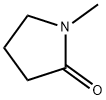Pyrrole , standardforGC,>99.7%(GC) , 109-97-7
Synonym(s):
Azole;Divinylenimine;Imidole;Pyrrole
CAS NO.:109-97-7
Empirical Formula: C4H5N
Molecular Weight: 67.09
MDL number: MFCD00005216
EINECS: 203-724-7
PRODUCT Properties
| Melting point: | -23 °C (lit.) |
| Boiling point: | 131 °C (lit.) |
| Density | 0.967 g/mL at 25 °C (lit.) |
| vapor density | 2.31 (vs air) |
| vapor pressure | 8.7 hPa (20 °C) |
| refractive index | n |
| FEMA | 3386 | PYRROLE |
| Flash point: | 92 °F |
| storage temp. | Store at +2°C to +8°C. |
| solubility | 60g/l |
| pka | 15(at 25℃) |
| form | Liquid |
| color | Clear almost colorless to brownish |
| PH | >6 (10g/l, H2O, 20℃) |
| Odor | at 0.10 % in propylene glycol. sweet warm nutty ethereal |
| Odor Type | nutty |
| biological source | synthetic |
| explosive limit | 3.10-14.8%(V) |
| Water Solubility | 60 g/L (20 ºC) |
| Sensitive | Air & Light Sensitive |
| Merck | 14,8014 |
| JECFA Number | 1314 |
| BRN | 1159 |
| Dielectric constant | 7.5(17℃) |
| Stability: | Stable. Incompatible with strong acids, strong oxidizing agents. Combustible. |
| InChIKey | KAESVJOAVNADME-UHFFFAOYSA-N |
| LogP | 0.85 |
| Surface tension | 36.6mN/m at 20°C |
| CAS DataBase Reference | 109-97-7(CAS DataBase Reference) |
| NIST Chemistry Reference | Pyrrole(109-97-7) |
| EPA Substance Registry System | 1H-Pyrrole (109-97-7) |
Description and Uses
Pyrrole plays a major role in synthesis of drugs, spices, agrochemicals, dyes, photographic chemicals and perfumes. It plays an important role in the electropolymerisation of macroporous conducting polymer films. It acts as a catalyst for polymerization process; as a standard substance in chromatographic analysis; as corrosion inhibitors and preservatives and as solvents for resins and terpenes. It is utilized to study the hydrogen-bond mediated coupling of 1,2,3-triazole to pyrrole and in the preparation of 1-(4-Chloro-benzoyl)-pyrrole by reacting with 4-Chloro-benzoyl chloride. In Ciamician-Dennstedt rearrangement, It is used to prepare 3-chloropyridine by reacting with dichlorocarbene.
Safety
| Symbol(GHS) |    GHS02,GHS05,GHS06 |
| Signal word | Danger |
| Hazard statements | H226-H301-H318-H332 |
| Precautionary statements | P210-P233-P280-P301+P310-P304+P340+P312-P305+P351+P338 |
| Hazard Codes | T |
| Risk Statements | 10-20-25-41 |
| Safety Statements | 26-37/39-45-39-24-16 |
| RIDADR | UN 1992 3/PG 3 |
| WGK Germany | 2 |
| RTECS | UX9275000 |
| F | 8-10-23 |
| Autoignition Temperature | 550 °C |
| TSCA | Yes |
| HazardClass | 3 |
| PackingGroup | III |
| HS Code | 29339900 |
| Hazardous Substances Data | 109-97-7(Hazardous Substances Data) |
| Toxicity | LD50 orally in Rabbit: 137 mg/kg |


